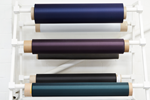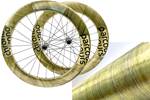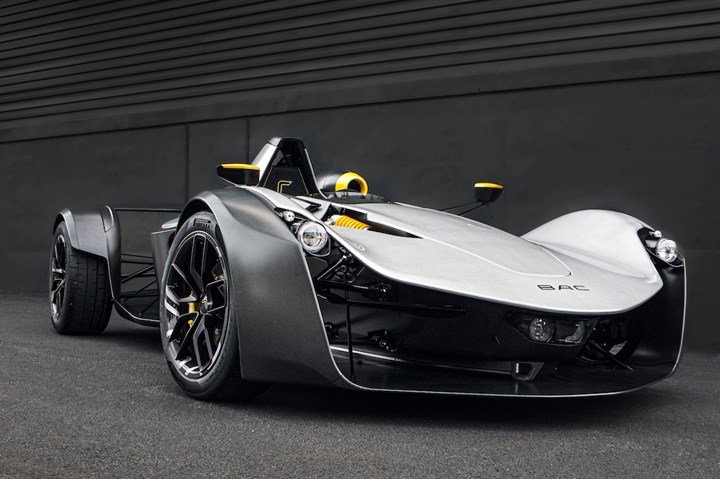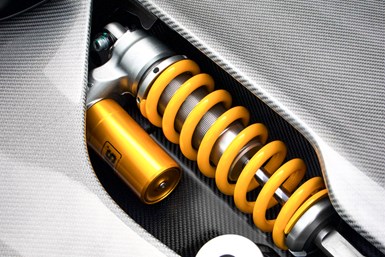British supercar is lightweighted using Hypetex colored carbon fiber
The bespoke BAC Mono R uses Hypetex titanium carbon fiber twill body for a distinctive aesthetic finish without the need for paint, for up to eight times more weight savings and maximized performance.
British car manufacturer Briggs Automotive Co. (BAC, Liverpool) has created a Hypetex (London, U.K.) colored carbon fiber version of its Mono R vehicle, reducing the weight by removing the need for paint. The carbon fiber body was built by Formaplex (Hampshire, U.K.), a company that manufactures lightweight engineered solutions for top Tier customers in automotive, aerospace and defense markets. BAC’s supply chain is 95% U.K.-based.
The original BAC Mono R was created to be lighter and more powerful than the standard model, with 343 brake horsepower and 555 kilograms in total weight, equating to a power-to-weight ratio of 618 brake horsepower-per-tonne. By removing the need for paint coatings in this version, the net weight of the exterior is reduced compared to a painted shell, resulting in improved overall performance.
The car’s body was created using Hypetex’s titanium carbon fiber twill, and finished with a crystalized lacquer, offering a distinctive aesthetic finish. The ultra-lightweight supercar can accelerate from zero to 60 miles per hour in less than 2.5 seconds.
Hypetex’s paint-replacement technology retains the visible weave, allowing for a bold design and a choice of colors without any technical compromise, aligning with BAC’s initiatives to maximize performance while creating bespoke supercars. Paint generally adds 138 grams per square meter, whereas Hypetex adds just 17 grams for the same area, offering more than eight times weight saving.
This bespoke version of BAC’s single-seater Mono R was subject to BAC’s Bespoke program, which ensures that no two Monos are the same. The client, a U.S.-based collector, worked with BAC’s design team to design the car to their personal taste.
Born out of Formula 1 technology, Hypetex offers manufacturers sustainable aesthetic materials with technical and efficiency benefits. It continues to expand its growing portfolio of the use of colored carbon fiber to add personalization to the automotive field, with its material recently featured on the 2024 Ford Mustang Dark Horse.
“I’m proud that Hypetex has been part of this project to create one of the world’s lightest and fastest production supercars,” Marc Cohen, Hypetex CEO, says. “Our colored carbon fiber is a perfect match for the sleek design and raw power of the BAC Mono R.”
Related Content
-
Plant tour: Joby Aviation, Marina, Calif., U.S.
As the advanced air mobility market begins to take shape, market leader Joby Aviation works to industrialize composites manufacturing for its first-generation, composites-intensive, all-electric air taxi.
-
Infinite Composites: Type V tanks for space, hydrogen, automotive and more
After a decade of proving its linerless, weight-saving composite tanks with NASA and more than 30 aerospace companies, this CryoSphere pioneer is scaling for growth in commercial space and sustainable transportation on Earth.
-
Sulapac introduces Sulapac Flow 1.7 to replace PLA, ABS and PP in FDM, FGF
Available as filament and granules for extrusion, new wood composite matches properties yet is compostable, eliminates microplastics and reduces carbon footprint.


















